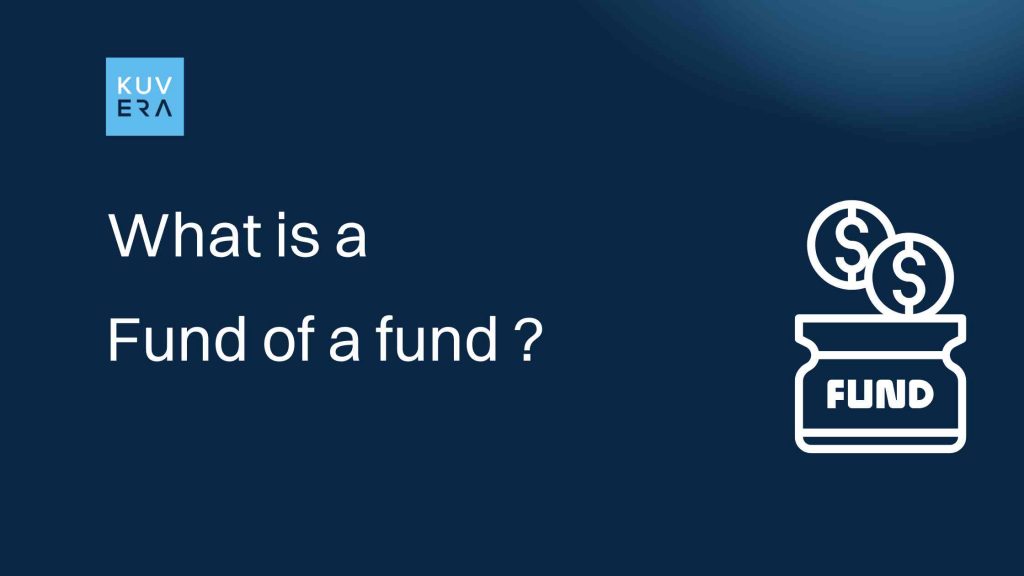What is a Fund of Funds?
The Fund of Funds (FoF) is a mutual fund scheme that invests in other mutual fund schemes.
Depending on your investment objectives, a mutual fund scheme can invest both in debt and equity.
However, instead of investing directly in equities or bonds, the fund manager holds a portfolio of other mutual funds. Funds can invest in schemes of the same fund house or another fund house. Investment in numerous fund categories offers investors the opportunity to benefit from diversification. The portfolio is designed to meet investor risk profiles and financial goals.
Types of Fund of Funds
A few of the most popular Fund of Funds available in India are:
Asset Allocation Funds:
Asset allocation funds invest in a variety of assets. These assets include equity, debt, and other asset classes like gold, other metals, and commodities.
Gold Funds:
Gold exchange-traded funds are one of the ways you can invest in gold. These gold ETFs invest in 99.5% pure gold. However, some investors don’t have a Demat account and cannot invest in gold ETFs. In this case, the Gold Fund of Funds is a good option since they invest in gold ETFs directly. An ICICI Prudential Regular Gold Savings Fund (FOF), for example, invests in an ICICI Prudential Gold ETF.
Foreign or International Fund of Funds:
Mutual funds that invest in global companies and bonds are said to be international funds.
Multi-manager Fund of Funds:
An investment fund consisting of many professionally managed funds but representing one portfolio is a multi-manager fund.
Who should Invest in Fund of Funds?
Small-time investors who don’t want to take many risks can consider the Fund of Funds. Diversification of funds reduces risk. If an investor has a small number of funds available for investing each month, this is an ideal medium for investing. Further, it may interest investors whose investment horizon is at least five years.
Advantages of Investing in Fund of Funds
No Tax on Rebalancing of Assets:
There will be no capital gains tax for the internal transaction when you rebalance your assets. Therefore, when your fund of funds is rebalanced to maintain a said allocation between debt and equity, taxes will not apply.
Ease of Handling:
The NAV is tracked in one place, and there is only one folio, which makes managing fewer funds easy.
Professional Fund Management Services:
Professional fund managers manage the Fund of Funds. Hence, the chances of making an informed decision are higher due to the professional competence of not one but many fund managers. With a thorough background check of these managers, you can be confident that a trustworthy individual manages your funds.
Opportunity for investors with limited capital:
The Fund of Funds encourages those with modest wealth to invest in diversified underlying assets. It would be next to impossible for investors to access these funds individually at the same price.
Limitations of Investing in Fund of Funds
High Expense Ratio:
Besides the standard management and administrative fees (also charged by other mutual fund schemes), there is an additional cost associated with the Fund of Funds. Even though the FoF cost ratio is only 1%, you will pay this amount on every fund that the FoF acquires as an investor.
Tax on Gains:
If there is any sale made within three years of purchase, short-term capital tax will apply based on the investor’s income tax bracket. If you sell the units after 36 months, a 20% long-term capital gain tax with indexation will be levied.
Repetition of investment:
The Fund of Funds invests in a variety of funds that, in turn, invest in so many other securities. As a result, there is a chance for repetition of the same stocks and assets through several funds. This limits the possibility of diversity.
Final Word
When utilized effectively, fund of funds might be a vital tool for achieving your asset allocation and diversification objectives. Fund of Funds, like mutual funds, are exposed to market risks and the investor has to proceed with caution after familiarizing themselves with the right investing techniques.
Interested in how we think about the markets?
Read more: Zen And The Art Of Investing
Watch here: How to invest during a bear market?
Start investing through a platform that brings goal planning and investing to your fingertips. Visit kuvera.in to discover Direct Plans and Fixed Deposits and start investing today. #MutualFundSahiHai #KuveraSabseSahiHai

